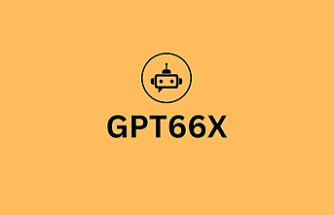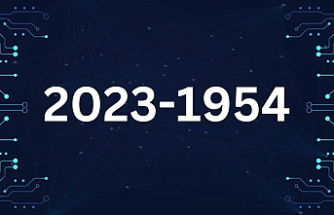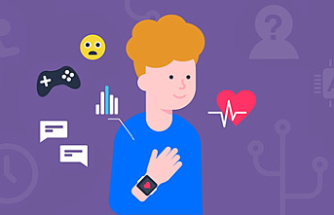This 2023, artificial intelligence is the main theme and it seems that every week, its technology evolves, endangering anyone's work. A type of anxiety that already has a name, 'AI-nxiety', and which is also fostered by unflattering news about the impact of this technology on humanity and, in particular, on the job market.
A few days ago, the company responsible for ChatGPT and the GPT-3, GPT-3.5 or GPT-4 language models, OpenAI, published a document in which the company itself analyzed the future impact of its technology on the US labor market. . According to the study itself, about 80% of the workforce of workers in the United States will have at least 10% of their tasks affected by ChatGPT and similar technologies. Also adding that 19% of jobs would be directly affected.
Now it is the American financial entity Goldman Sachs who collects in an investigation that artificial intelligence could cause a disruption in the labor market that would affect 300 million jobs worldwide. According to this document, advances in artificial intelligence could lead to the automation of a quarter of the work done in the United States and Europe, while around two-thirds of current jobs are exposed to a degree of automation.
Although the report has positive predictions such as that systems like ChatGPT could cause a productivity boom, thus increasing the annual global gross domestic product, temporarily for ten years, by 7% and could generate the creation of new jobs. The other side of the coin is the exposure to automation of up to 300 million full-time workers, according to report authors Joseph Briggs and Devesh Kodnan.
Most workers will see half their workload automated without facing redundancy, which could increase their free time for leisure and other activities. Affecting 64% of the US workforce, while 30% doing physical or outdoor work will not be affected. However, there is a much more vulnerable 7% since more than half of their work will be able to be done by an AI.
In fact, the most affected group would be the 'white-collar workers', workers with studies who carry out legal and administrative tasks. Jobs like sales coordinator, managers, some types of managers and legal advisors. These estimates were made based on an analysis of data, both from Europe and the United States, about jobs that could be redundant thanks to this technology.
The researchers assumed that the AI would be capable of performing tasks such as completing tax returns for a small business, evaluating claims to an insurance company, or documenting the results of a crime scene investigation. They have not planned to adopt this automation in more sensitive tasks such as issuing a court ruling, checking the status of a patient in intensive care or studying international tax laws.
In an earlier study by researchers from Princeton University, the University of Pennsylvania, and New York University, published in March of this same year, he also estimated that legal services is the sector most likely to be affected by technology such as ChatGPT.
Despite the anxiety generated by this new fear of losing a job, there are more optimistic data that foresee a golden age in terms of productivity, without the need for layoffs or fully automated jobs with artificial intelligence. Becoming this one more work tool and it is not a substitute.
For example, researchers from Microsoft and MIT published an analysis in February that revealed how developers who use AI are able to complete tasks 55.8% faster than those who do not. Weeks later, MIT scientists pointed out in a study that professionals who use ChatGPT feel more satisfied in their work, since with this tool they are able to automate tedious processes, thus being able to finish sooner.
In an analysis published by the Center for Economic Policy Research in 2016, they looked at the effect of automation on job growth in the US. The conclusion of the author, James Bessen, is that occupations that use computers need not suffer job losses.
"The belief that computer automation necessarily leads to large job losses ignores the dynamic economic response to automation, a response that involves both changes in demand and substitution between occupations," says Bessen.
Most of the automation is partial. For example, despite extensive automation since 1950, it appears that only one of the 270 occupations listed in the 1950 US Census was eliminated thanks to automation, elevator operators.
Even as early as 2022, both the US and the European Commission expressed great interest in working on a joint study to assess the potential impact of artificial intelligence on the workforce in both territories. In this document, they point to other occupations exposed to automation such as clinical laboratory technicians, chemical engineers, optometrists, and power plant operators; since unlike software and robots, AI performs tasks that involve detecting patterns, making judgments and optimizing. "In more general terms, high-skill occupations are the most exposed to AI," the document reads. Although it also highlights the appearance of new jobs derived from this technology.
Also Europol this week warned about the use of tools such as ChatGPT by criminal networks. For example, he has pointed out the potential of this tool to generate coherent and very realistic texts to plan phishing tactics by posing as companies or people. He also fears the effects in terms of disinformation for propaganda purposes.
"If a potential criminal knows nothing about a particular criminal area, ChatGPT can significantly speed up the investigation process, by offering key information that can then be further explored in later steps. As such, ChatGPT can be used to learn about a wide number of possible criminal areas without prior knowledge, ranging from how to enter a house, to terrorism, cybercrime and child sexual abuse," added Europol in the report.
According to the criteria of The Trust Project












